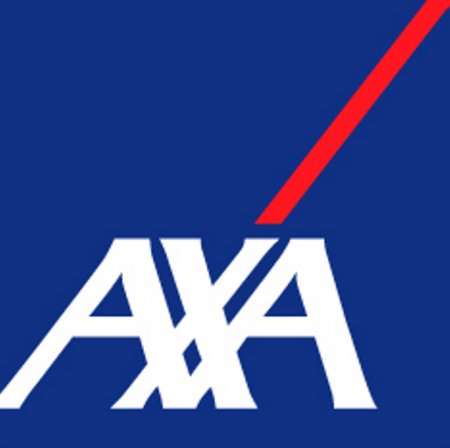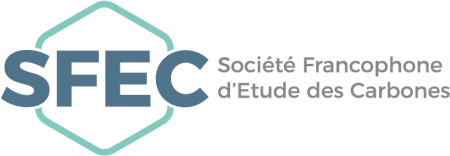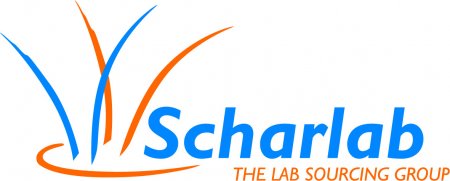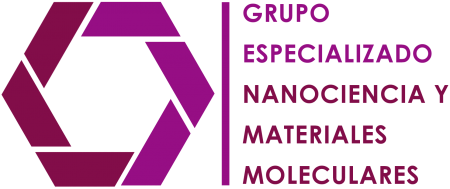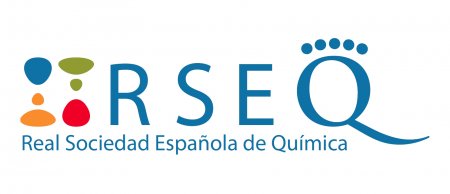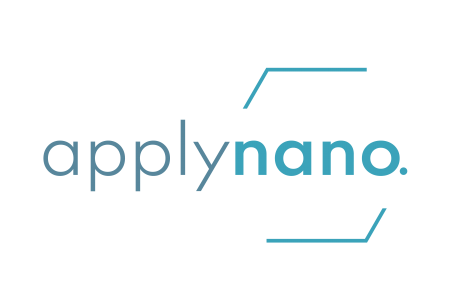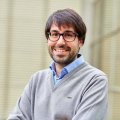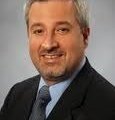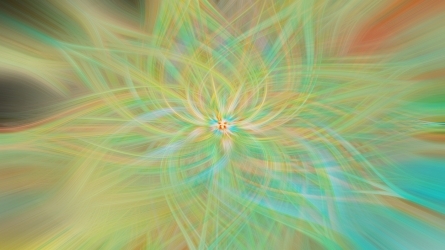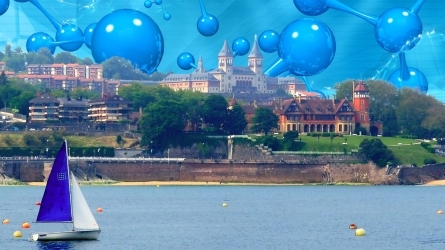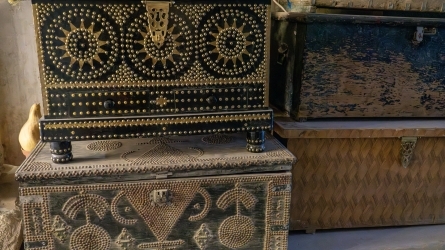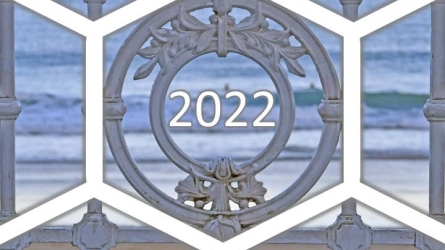
ChemOnTubes2022
Description
ChemOnTubes 2022 is an international congress about lastest and most relevant results in field of chemistry of low dimensional materials, such as carbon nanotubes, graphene derivatives, carbon nanodots, 2D layered materials and polycyclic aromatic hydrocarbons. In particular, the lastest advances in synthesis, chemical modification and applications of the mentioned structures will be addressed.
Download here: BOOK OF ABSTRACTS
Objectifs
Dissemination of the lastest and most relevant results in field of chemistry of low dimensional materials
Interaction between the most promissing research groups in the mentioned field
With this congress we also want to show the state-of-the-art results developed in the Basque Country area
Special attention on promissing young researchers and gender balance will be considered
Activité s'adressant à
- Unibertsitateko ikaslea
- Unibertsitarioak ez diren ikasleak
- Irakasleak
- Profesionalak
- Publiko orokorra
Collaborateurs
Directeurs

Maurizio Prato
CICbiomaGUNE
Prof. Maurizio Prato is the principal investigator of the Carbon Bionanotechnology Laboratory. His scientific achievements have set unprecedented landmarks in the fields of Carbon Nanosciences, tearing down the traditional barriers between Chemistry and other disciplines such as Physics, Biology, Medicine and Energy Materials. Prato’s work is recognized worldwide, being a key player in the design and synthesis of tailored Carbon Nanostructures for bio-nanotechnology applications and solar energy conversion and storage. He has published more than 600 papers on international peer reviewed Journals, with a total of around 59,000 citations and an h-index of 113. Has been invited to more than 250 conferences and workshops in the last 10-15 years as a plenary or keynote speaker, and has given more than 50 invited talks in Universities or research centers all around the world.

Alejandro Criado Fernández
CICbiomaGUNE
Dr. Alejandro Criado received his BS degree in chemistry, followed by his PhD in organic chemistry at the University of Santiago de Com- postela. Then, he was a postdoctoral fellow at the University of Trieste in the group of Professor Prato. He is currently a Juan de la Cierva – Incorporación postdoctoral researcher at CICbiomaGUNE research center in the Carbon Bionanotechnology group. Dr Alejandro Criado has mainly focused his work on the synthesis of polyarenes, nanographenes, functionalization of carbon nanotubes, graphene for application in electronic devices and biomedicine.
Conférenciers
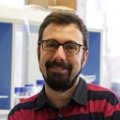
Alberto Bianco
CNRS
Alberto Bianco received his PhD in 1995 from the University of Padova (Italy). As a visiting scientist, he worked at the University of Lausanne (Switzerland), the University of Tübingen (Germany) (as an Alexander von Humboldt fellow) and the University of Padova. He is Research Director at the CNRS in Strasbourg. He has been invited to Japan as JSPS fellow in 2012 (Tohoku University, Sendai) and 2105 (AIST, Tsukuba), and as visiting Professor in 2019 (Kyoto University). His research interests focus on the design of multifunctional carbon nanomaterials for therapeutic, diagnostic and imaging applications. He is in the Board of the International Research Network on Graphene and Nanotubes. In 2017 he has been elected Fellow of the European Academy of Science. In 2019 he has obtained the CNRS Silver Medal. He is co-author of over 270 papers. He is in the Advisory Board of Nanomedicine, Nanotechnology Reviews and the Journal of Peptide Science. Since 2011 he is Editor of the journal Carbon.

cinzia casiraghi
Prof Casiraghi holds a Chair in Nanoscience at the Department of Chemistry, University of Manchester (UK). She received her B.Sc. and M.Sc. in Nuclear Engineering from Politecnico di Milano (Italy) and her PhD in Electrical Engineering from the University of Cambridge (UK). In 2005, she was awarded with an Oppenheimer Early Career Research Fellowship, followed by the Humboldt Research Fellowship and the prestigious Kovalevskaja Award (1.5M Eur). In 2010 she joined the department of chemistry at the University of Manchester. Her current research work focus on the development of biocompatible 2D inks and their use in printed electronics and biomedical applications. She has published more than 100 works in well-respected journals in the field, by collecting more than 30,000 citations and a h-factor of 51. She is a leading expert on Raman spectroscopy, used to characterize a wide range of carbon-based nanomaterials, as shown by the RSC Marlow Award (2014), given in recognition of her pioneering work on Raman spectroscopy. She is recipient of the Leverhulme Award in Engineering (2016, 100K GBP), and the recent RSC 2020 Gibson-Fawcett Award, in recognition of her contribution. She was also awarded an ERC Consolidator grant (2015, 2M €)
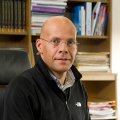
Dirk Guldi
University of Erlangen - Nürnberg. Germany
Dirk M. Guldi completed both his undergraduate studies (1988) and PhD (1990) at the University of Cologne (Germany). Following postdoctoral appointments at the National Institute of Standards and Technology (USA), the Hahn-Meitner Institute Berlin (1992), and Syracuse University, he joined the faculty of the Notre Dame Radiation Laboratory in 1995. He was promoted a year later from assistant to associate professional specialist and remained affiliated to Notre Dame until 2004. Since 2004, he is Full Professor in the Department of Chemistry and Pharmacy at the Friedrich-Alexander University in Erlangen. The Guldi group and its network belong to the cutting edge of worldwide research in solar-energy conversion with expertise not only in advanced photon- and charge-management without losing sight of the ultimate objective of developing integrated solar energy-to-chemical fuel conversion systems, which in the future can be utilized in real devices. Impressive documentations of their accomplishments are more than 700 peer-reviewed publications and an h-index of 104.

Nicholas Kotov
University of Michigan

Silvia Marchesan Marchesan Marchesan
Università degli Studi di Trieste
Aurelio Mateo-Alonso obtained his BSc (1999) and MSc (2000) degrees in organic chemistry from Universidad Autónoma de Madrid (Spain). In 2004, he completed his PhD at Queen Mary University of London (UK). Between 2004 and 2009 he was a Postdoctoral Researcher at Università di Trieste (Italy). In 2009 he joined the Freiburg Institute for Advanced Studies (Germany) as a Group Leader. Since 2012 he has been an Ikerbasque Research Professor and Group Leader at POLYMAT and at the University of the Basque Country in San Sebastian (Spain). He has been the recipient of the Young Investigator Prize of Università di Trieste (Italy 2007), the Eugen-Graetz Prize of Universität Freiburg (Germany 2009), the Sigma–Aldrich Young Investigator Prize of the Spanish Royal Chemical Society (Spain 2011), and the Young Investigator Award of the Nanocarbons Division of the Electrochemical Society (USA 2012). In 2016 he received a Consolidator Grant of the European Research Council (ERC).

Diego Peña Gil
CIQUS, Universidad de Santiago de Compostela
Diego Peña obtained his PhD degree in 2001 from the University of Santiago de Compostela (USC), under supervision of D. Pérez and E. Guitián. He was PhD visitor at Harvard University (1999, Jacobsen group), LMU Munich (2000, Knochel group) and UAM Madrid (2001, Echavarren group). During 2002 and 2003 he joined the group of B. L. Feringa (Nobel Laureate 2016, Groningen University, The Netherlands) as a Marie Curie Post-Doctoral Fellow. He was research visitor at DSM Research (Geleen, The Netherlands) and CRANN, Trinity College (Dublin, Ireland). In 2004 he obtained a Ramón y Cajal researcher grant. Since 2008 he is Principal Investigator at CiQUS (Center for Research in Biological Chemistry and Molecular Materials) and Associate Professor of Organic Chemistry at USC. In 2018 he was awarded with the Ignacio Ribas Medal by the Spanish Royal Society of Chemistry (RSEQ). His research interests are focused on the synthesis of large aromatic compounds and nanographenes.

Alain Penicaud
Université de Bordeaux - CNRS
Alain Pénicaud is a carbon specialist that specializes in dissolving insoluble forms of carbon. He showed in 2005 that true solutions of carbon nanotubes could be obtained by dissolving alkali metal salts of nanotubes. His team later applied that to graphite to obtain graphene solutions in 2007. Recently, his team showed that single layer graphene and individualized nanotubes could be stabilized in water without surfactants or sonication, by hydroxide adsorption, leading to the creation of the company Carbon Waters in 2017, employing now 8 people in Pessac, near Bordeaux. A. Penicaud's team has also showed that performing graphene-based electrocatalysts, supercapacitors and conducting inks and rubbers could be obtained from food waste.
Obtained his B.Sc. degree in Engineering Physics with first class honors at Universidad Iberoamericana, and was distinguished as the Best Student of Mexico in Engineering Physics in 1992. In 1994 he started his doctorate degree with Sir Prof. Harold W. Kroto (Nobel Laureate), and received his D.Phil. degree from University of Sussex in 1998. He has co-authored more than 550 publications in international journals, and counts with more than 50,000 citations to his work (His H index is 105; Google Scholar H=119). He is member of the Mexican Academy of Sciences since 2002. In 2012 he was elected fellow of the American Association for the Advancement of Science (AAAS). In 2015, he was elected fellow of the Royal Society of Chemistry (UK) and was awarded the Jubilee Professorship from Chalmers University of Technology (Sweden). In 2016, He was awarded the Faculty Scholar Medal in Physical Sciences (Penn State). In 2017, Terrones was also elected fellow of the APS. Highly cited researcher.

Ester Vázquez
Ester Vázquez obtained her Ph.D. degree from the University of Castilla-la Mancha in 2000. She performed her doctoral research mainly in the Microwave and Sustainable Chemistry group of UCLM, working on microwave-assisted organic reactions in dry media. She also spent a few months at the University of Zaragoza, studying silica-supported Lewis acids for catalysis and at the Karolinska Institute in Stockholm, working on microwave applications in radiolabelling tracers for positron emission tomography (PET). After finishing her Ph.D., she carried out her postdoctoral training in Trieste, Italy, working on biological applications of fullerene derivatives in the group of Professor Maurizio Prato, in the frame of a European Research Training Network. She then joined the Faculty of Chemistry at UCLM in 2001, completing other short stays in Trieste in 2002-3. In 2007 she received the “Ibn Wafid de Toledo” Price for young researchers of Castilla-La Mancha. She was promoted to Associate Professor in 2010, and to Full Professor in 2019. She became director of the Instituto de Investigación Científica Aplicada (IRICA) in 2017 and she is co-founder of the spin- off Biograph Solutions.

Sabine SZUNERITS
IEMN-ULille
Tarifs inscription
| Matrikula | 2022-03-27 arte | 2022-04-04 arte |
|---|---|---|
| 550,00 EUR | 650,00 EUR | |
| 0 EUR | 0 EUR | |
| 0 EUR | 0 EUR |
Lieu de l'événement
Miramar Jauregia
Mirakontxa pasealekua 48, 20007 Donostia
Gipuzkoa
Miramar Jauregia
Mirakontxa pasealekua 48, 20007 Donostia
Gipuzkoa

